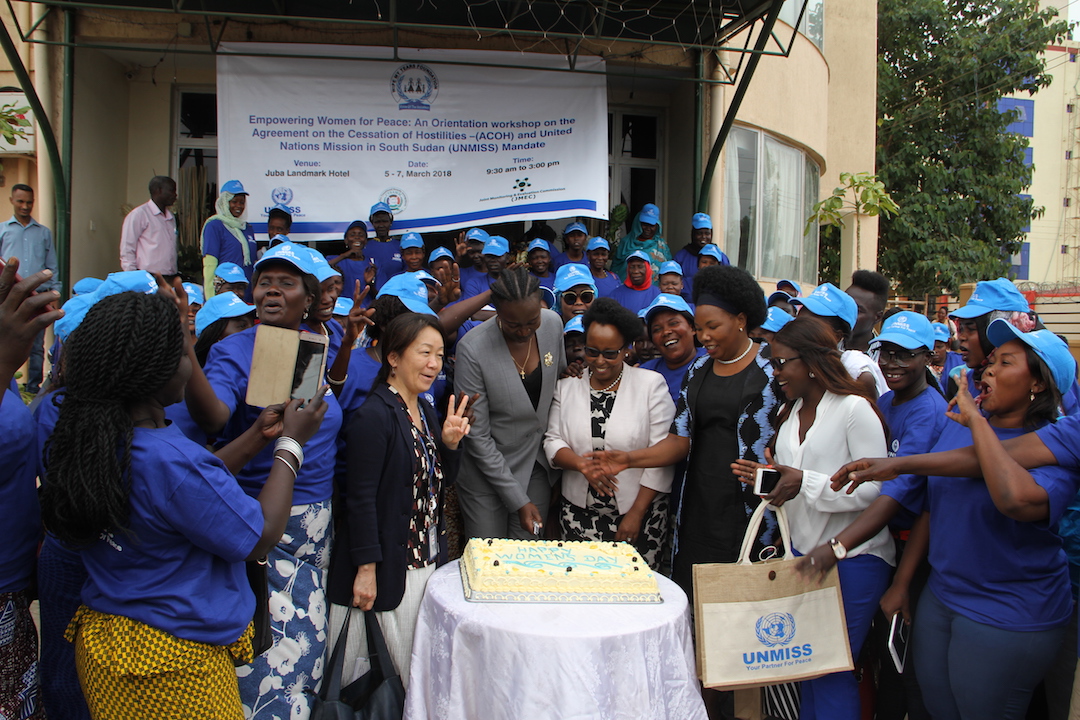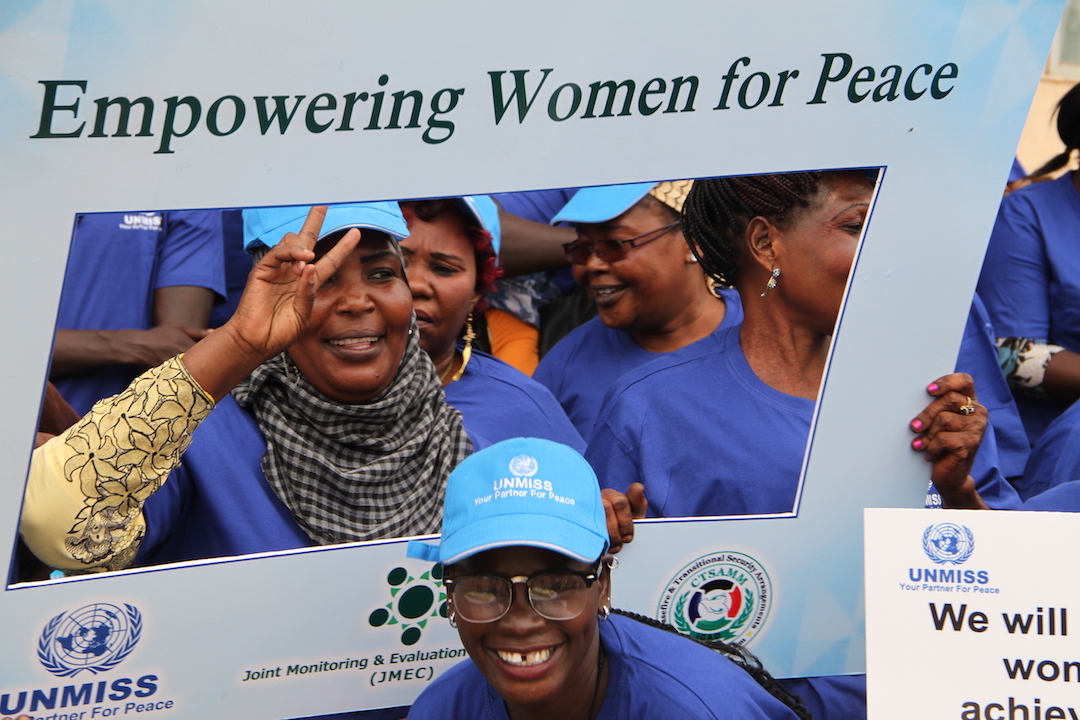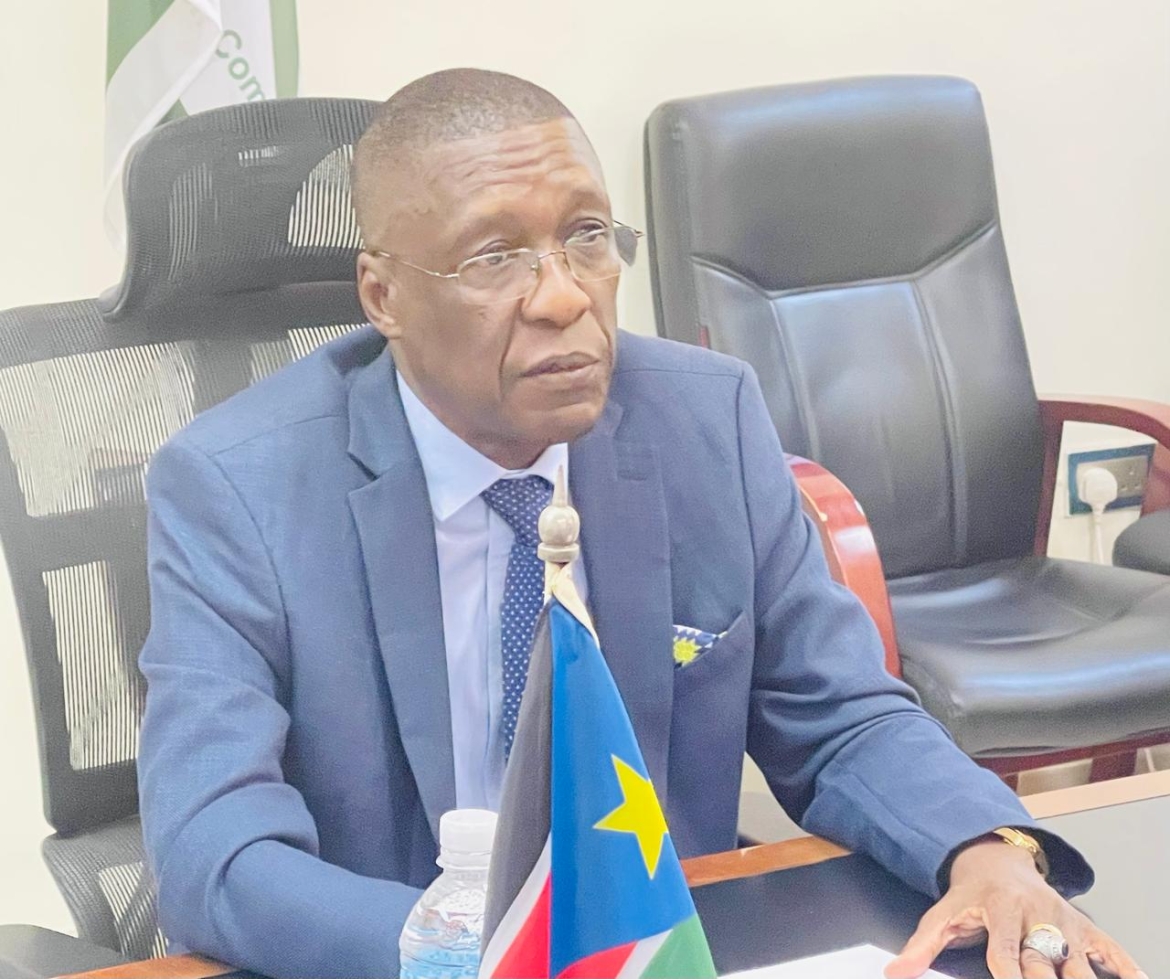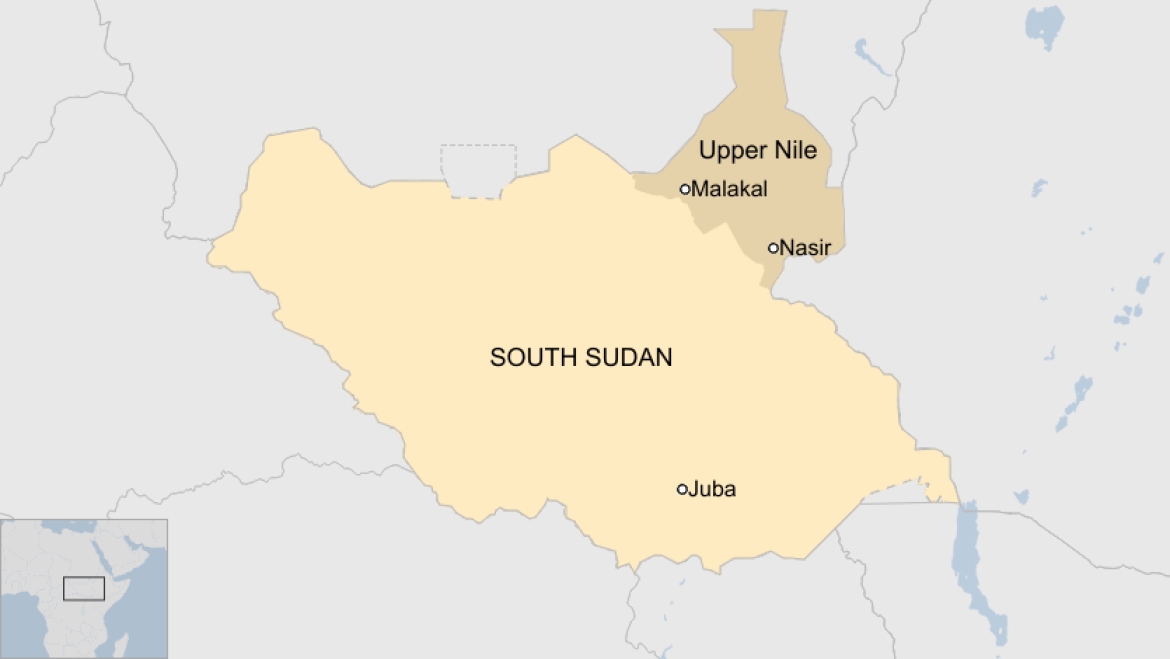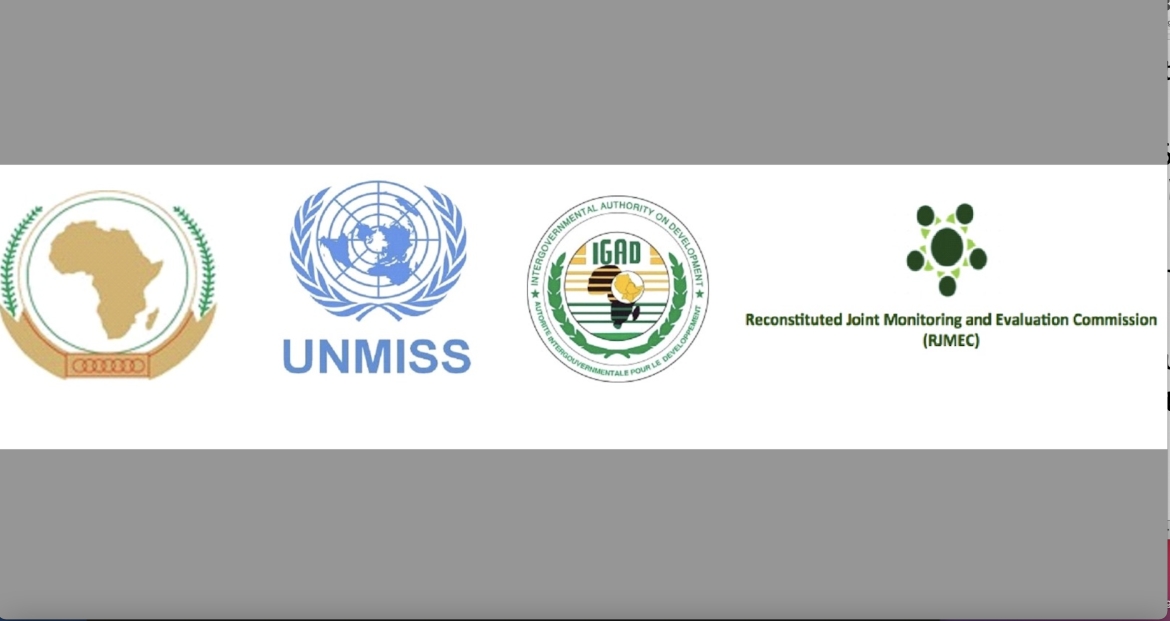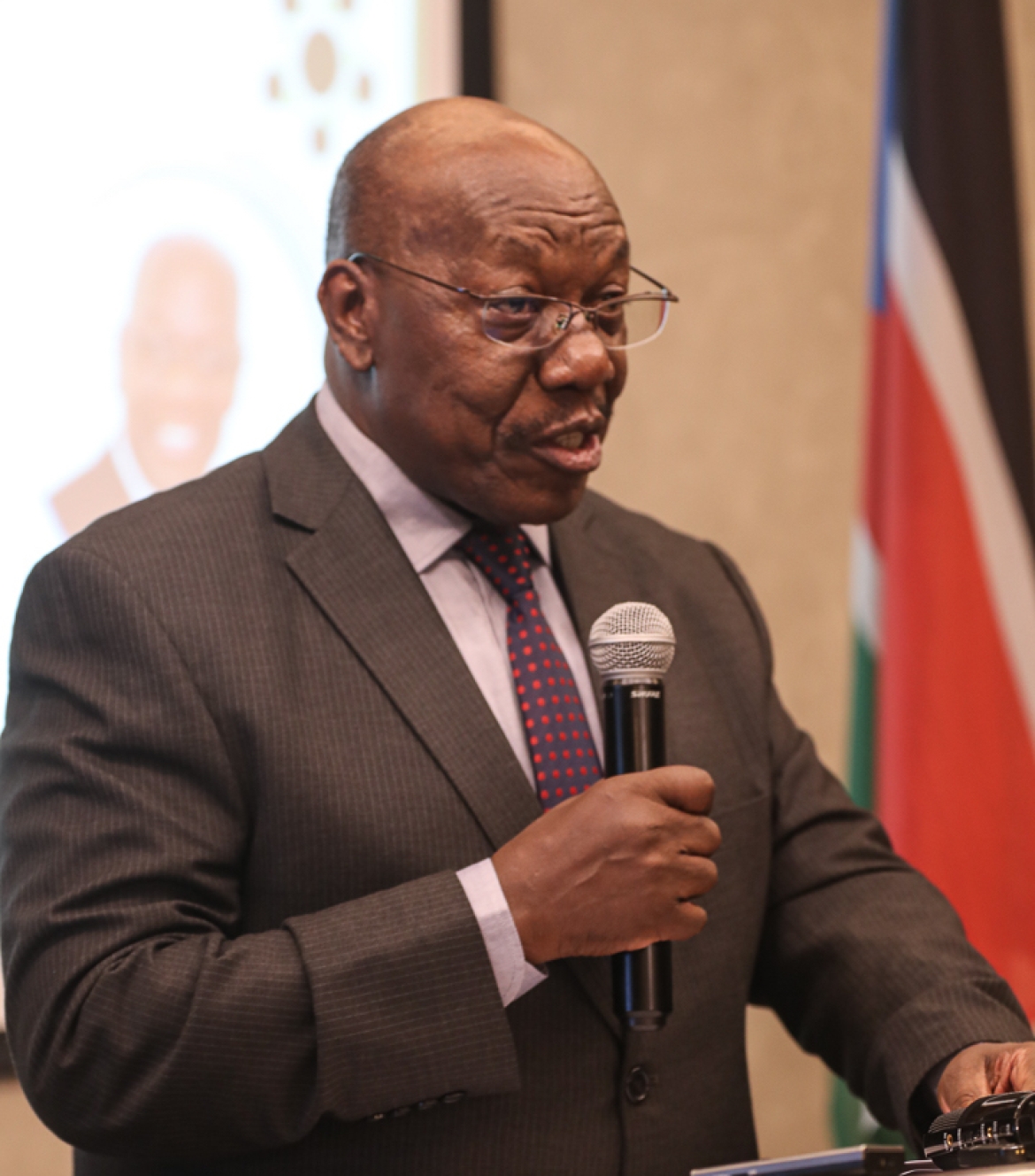Involve us more on ACoH, say S. Sudan women, PLWDs
Three-day Cessation of Hostilities Agreement (ACoH) orientation workshop targeting women and people living with disabilities (PLWDs) in South Sudan came to a close on Wednesday.
The forum aimed at sensitizing the two groups on the ACoH signed between Parties in the country last December brought together at least a hundred participants.
Speaking during the closing ceremony, South Sudan Minister for Gender and Social Welfare Hon. Aout Deng Acuil said:
“It is very important that women in South Sudan work for peace and how to silence the guns. It is prudent that their voices be heard,”
South Sudan Minister for Gender and Social Welfare Hon. Aout Deng Acuil (in grey suit) cuts a cake to mark this year's International Women's Day. The day will be marked on Thursday, March 8.
“We must remember and appreciate the role of women in our society. Such a workshop helps in making women and people with disabilities that they are not only expected to play a positive role, but also be are a pillar for peace,” she added.
Lillian Musa, a participant said, “I am now more informed about the Agreement (ACoH), and what I am expected of, as woman of South Sudan.”
Abalo Grace added “For us to play a role in the implementation of the Agreement, we need resources. We need protection and political support and national and international goodwill,”
Participant Sabah Abadalla said, “Agreements aimed at silencing the guns, and stop the killings are important. But most important is the full, honest and inclusive implementation and I think women are an integral part in doing this,”
The women workshop ended a day before the world marks World International Women Day, on Thursday. The event is a global celebration of the social, economic, cultural and political achievements of women. This year’s theme is “Press for Progress.”
During the workshop, participants raised lack of awareness, lack of resources, political goodwill, high level of illiteracy and cultural beliefs are some of the challenges hampering more women involvement in the peace process in South Sudan.


